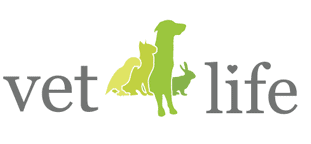 If you have a veterinary emergency over the Christmas period, you can rest assured we are on call 24/7. Please call 020 8977 3955.
If you have a veterinary emergency over the Christmas period, you can rest assured we are on call 24/7. Please call 020 8977 3955.
Chocolate
Chocolate contains a stimulant called theobromine (a bit like caffeine) that is poisonous to dogs. The amount of theobromine differs in the different types of chocolate (dark chocolate has the most in it).
Theobromine mainly affects the heart, central nervous system and kidneys. Signs of theobromine poisoning will occur from 4-24 hours following ingestion and will vary depending on the amount of chocolate your dog has eaten. You may see vomiting, diarrhea, restlessness, hyperactivity and seizures.
There is no antidote to theobromine. In most cases your vet will make your dog vomit. Other treatments will depend on the signs your dog is showing.
Caffeine
Like chocolate, caffeine also contains stimulants. Caffeine is found in the fruit of the plant that is used to make coffee.
Dogs are more sensitive to the effects of caffeine than people. A couple of laps of tea or coffee will not do any harm, but the ingestion of moderate amounts of coffee grounds or tea bags can lead to serious problems. Signs and treatment are similar to chocolate toxicity.
Onions, Garlic, Chives
These vegetables and herbs can cause stomach and gut irritation. Although cats are more susceptible, dogs are also at risk if a large enough amount is consumed.
Onions are particularly toxic and signs of poisoning occur a few days after your dog has eaten the onion. Left over pizza, Chinese dishes and commercial baby food containing onions, sometimes fed as a supplement to young pets, can cause illness.
Alcohol
Alcohol is significantly more toxic to dogs than to humans. When consumed, alcoholic beverages and alcoholic food products may cause vomiting, diarrhea, decreased coordination, problems with the central nervous system , difficulty breathing, tremors, abnormal blood acidity and coma.
Avocado
A substance called Persin that is contained in the leaves, fruit, seeds and bark of avocados can cause vomiting and diarrhea in dogs. In addition, birds and rodents are particularly sensitive and serious reactions such as the development of congestion and difficulty breathing can be seen.
Grapes & Raisins
The toxic substance that is contained within grapes and raisins is unknown; however these we know that these fruits can cause kidney failure. Dogs that already have certain health problems may have an even more serious reaction so grapes and raisins are certainly ones to avoid.
Macadamia Nuts
Within 12 hours of ingestion macadamia nuts can cause dogs to experience weakness, depression, tremors, vomiting and hyperthermia (increased body temperature).
Bones
Although some dogs enjoy bones as treats, it is important to remember that domestic dogs may choke on the bones, or sustain injury as the splinters can become lodged in - or puncture - your dog's digestive tract.
If you choose to give your dog bones be sure to keep an eye on him while he tucks in, and avoid giving cooked bones (which splinter easily) or giving bones that are small enough to get stuck in their bowels.
Eating large quantities of bone can often cause constipation, so try to monitor the amount your dog manages to consume.
Corn on the cob
Corn on the cob does not digest well in a dog’s stomach and can cause an intestinal blockage due to its size and shape. If your dog has eaten a corn on the cob watch for signs of trouble such as vomiting, loss of appetite or reduced appetite, absence of faeces or sometimes diarrhea and signs of abdominal discomfort.
Xylitol
The artificial sweetener xylitol found in many foods such as sugar free gum, diabetic cakes, diet foods etc. causes insulin release in many species leading to potentially fatal lowered sugar level. The initial symptoms include lethargy, vomiting and loss of coordination. Following this, an inability to stand and seizures may occur.
Milk
As dogs do not have very many of the enzymes that break down lactose in milk, feeding your dog milk and other milk-based products can cause diarrhea and other digestive upsets.
Ethylene glycol (Antifreeze)
Most people are unaware of the danger to pets from antifreeze poisoning. Cats most commonly ingest this in the winter outside on the road. Ingesting the smallest amount can cause kidney failure and death, especially in cats. Do not allow your dog to drink puddles on the pavement or in the gutter as antifreeze may have been spilt in them when people are filling their cars up.
Christmas decorations
All pets are at risk of ingesting Christmas decorations such as tinsel and baubles. If they chew or eat any decorations they can get stuck in their digestive tract and cause problems such as vomiting, diarrhea and lethargy. Take care with new pets, especially puppies and kittens.
Festive wrapping
Strings and wrapping can be great fun for your pets to play over the festive season but they can also become dangerous if ingested and become stuck within the digestive tract.
Poinsettias
During the holidays, Poinsettias are a popular Christmas plant which can be toxic to cats and dogs. When ingested, mild signs of vomiting, drooling, mild conjunctivitis and diarrhea may be seen.
Top tips for a safe and fun festive season
- If you suspect that your pet has ingested any of these items, please note the amount ingested and contact your vet as soon as possible
- Keep all household chemicals and antifreeze locked away out of reach
- Do not leave pets unattended with Christmas decorations
- Socialise puppies and kittens with decorations slowly
- When returning from a walk, check dogs paws for any foreign material
- Do not feed your pets any of the above foods
- Take care with treats and extras over the festive period, over feeding can cause an upset tummy
If you have a veterinary emergency over the Christmas period, you can rest assured we are on call 24/7. Please call 020 8977 3955.


